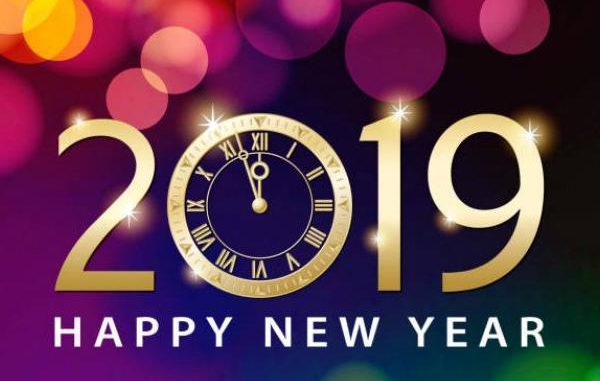
Today is New Year Day, the first day in 2019. As usual with every new year, people all over the world, Nigerians inclusive, express optimism that their lot will improve significantly over what they experienced in the outgone year.
So they reflect on their activities and interactions in the past year, review their actions and otherwise, and see where to make positive adjustments going forward in order to achieve better things in the new year.
For Nigeria, 2018 was a very eventful year especially in the political, economic, industrial and security sectors.
Insecurity was the one that most set Nigerians on edge last year, especially the mindless bloodletting by bandits in Zamfara and the herders and farmers conflict which led to the deaths of hundreds and created thousands of internally displaced persons mostly across the north central states.
Another sore point was the resurgence of Boko Haram which moved from attacking soft targets to launching daring raids on military bases, after they had earlier been decimated and dislodged from its Sambisa Forest base.
Other types of criminality like kidnapping, cult violence, ritual killings, bank robberies, pipeline vandalisation and the activities of internet fraudsters posed challenges to the nation’s security system. Happily the security agencies recorded commendable feats in curtailing these crimes and many of the criminal protagonists are in custody.
On the economy, the country exited recession last year and even recorded a growth of 1.81 per cent in the third quarter. However, most Nigerians say their conditions have not improved much, and the country slid down in practically every parameter of measuring human development, including being the worst place for babies to be born as well as the poverty capital of the world.
However, targeted federal government programmes empowering farmers, especially rice cultivators, helped the country to achieve a level of self sufficiency and drastically cut down on food importation.
With 2018 being the eve of a general election year, the political scene occupied the thoughts of most Nigerians in the past year. It was dominated by preparations by the Independent National Electoral Commission (INEC) and political realignments, with a telling episode being the reconciliation of former President Olusegun Obasanjo with his erstwhile vice president and the PDP presidential candidate, Atiku Abubakar, and the mass defections across party lines, especially the defection of Senate President Bukola Saraki and Speaker Yakubu Dogara to the main opposition Peoples Democratic Party.
In the industrial sector, 2018 was marked by strikes in various sectors, especially in the medical and tertiary education sectors. At the moment, the strikes by the Academic Staff Union of Universities (ASUU) and its polytechnics counterparts, ASUP, have kept undergraduates at home for weeks and pose a threat to the smooth conduct of this year’s general elections.
And as we enter the new year, Nigerian workers are mobilising for a general strike on January 8 following what they perceive at government dragging its feet over the implementation of the N30,000 new minimum wage negotiated earlier last year.
There were equally notable events in the past year, but as we begin a new year today, this newspaper is constrained to point a few critical areas the nation must address to have a better, viable 2019.
The first and most important is the February general elections. INEC, the security agencies, the political actors and their parties, and the electorate must play their legally assigned roles in order to achieve peaceful and credible polls. The electoral umpire and the security agencies must be professional and impartial in discharging their tasks of conducting the elections and securing the process. Rogue elements among them must be stopped in their tracks. If the nation gets it right, half of its problems are solved. On the flipside, if it goes wrong, the country could unravel in a way that could put its very existence in jeopardy.
All the political actors must play by the rules and eschew every act capable of undermining the process, including the latest practice of vote buying. Like the president said in his new year broadcast, the election is not a do-or-die affair, and should not be.
Another area is security. Nigerians would like to see the end of Boko Haram this year. The campaign against the insurgents must be fought with everything in the country’s arsenal, even if it entails soliciting foreign help. After all, terrorism is a globalised crime. This time, the security agencies need to synergise and restrategise, with greater emphasis on intelligence and technology. The troops must be equipped with modern weapons and tools of their trade.
On the economic front, the rhetoric about diversifying the economy should be matched with action. The nation cannot industrialise without electric power and other infrastructure, especially roads and rails. Thus, the country’s government must make these sectors work, in addition to other wealth creating endeavours. Oil alone cannot take us anywhere.
Also, there must be industrial harmony for the country to work. If workers down tools, it costs the economy heavily. First, the new minimum wage needs to be implemented. If workers have more purchasing power, it will help alleviate poverty and reflate the economy.
These, and other good initiatives, in our opinion, will ensure a more viable, and prosperous year for Nigeria.
END

Be the first to comment